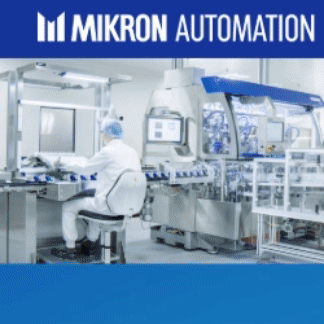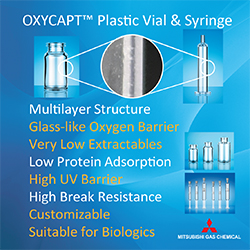Denali Therapeutics Announces Strategic Partner Takeda Exercises Option to Co-Develop & Co-Commercialize Brain-Penetrant Progranulin Replacement Therapy
Denali Therapeutics Inc. recently announced its strategic partner Takeda Pharmaceutical Company Limited has exercised an option, pursuant to an existing collaboration agreement between the two companies, to co-develop and co-commercialize DNL593 (PTV:PGRN), an investigational, brain-penetrant progranulin replacement therapy for the potential treatment of frontotemporal dementia-granulin (FTD-GRN).
“We are excited to advance our collaboration with Takeda on the development of DNL593 as a potential treatment for people with FTD-GRN,” said Denali’s Chief Executive Officer, Ryan Watts, PhD. “Pending acceptance of regulatory submissions, DNL593 will be the sixth therapeutic candidate from our broad pipeline, and our second Transport Vehicle (TV)-enabled molecule, in clinical development. This progress underscores the potential of our TV platform technology, which is designed to enable and enhance delivery of biologic therapeutics to the brain for the treatment of neurodegenerative diseases.”
“At Takeda, our focus is to develop transformative treatments for patients suffering from devastating neurologic disorders. One of the main challenges in the development of these medicines is to achieve adequate biodistribution in target tissues, and Denali has engineered a promising TV platform technology to transport biologic therapeutics across the BBB and into the brain,” said Sarah Sheikh, BM BCh, MSc, MRCP, Head, Neuroscience Therapeutic Area Unit at Takeda. “Preclinical studies with DNL593 are encouraging and demonstrate that Protein Transport Vehicle (PTV) can enhance the uptake of peripherally administered progranulin (PGRN) by multiple cell types in the brain, including neurons and microglia. We look forward to working with Denali to deliver DNL593 as a potentially transformative treatment for people living with FTD-GRN.”
In January 2018, Denali and Takeda entered into a collaboration agreement, pursuant to which Takeda was granted an option for three programs including PTV:PGRN. By exercising its option to the PTV:PGRN program, Takeda obtains the right to develop and commercialize DNL593 jointly with Denali. Denali will receive an option fee and may also receive future milestone payments upon achievement of certain clinical and regulatory milestone events as well as certain sales-based milestones. Subject to the terms of the collaboration agreement, the companies will share the development and commercialization costs equally, and, if applicable, profits on a worldwide basis.
FTD is the most common form of dementia in people under 60 years of age. While the progression of symptoms varies by individual, FTD brings an inevitable decline in function together with changes in personality and social behaviors, and sometimes language and/or motor dysfunction. Mutations in the granulin (GRN) gene, which encodes the progranulin (PGRN) protein, generally result in reduced levels of PGRN and are amongst the most common genetic causes of FTD. There are currently no approved medications to stop or slow the progression of FTD or FTD-GRN.
DNL593 is an investigational, intravenously administered, brain-penetrant progranulin (PGRN) replacement therapy enabled by Denali’s Protein Transport Vehicle (PTV) technology. PGRN is known to promote lysosomal function, in addition to having neurotrophic and anti-inflammatory effects. Data from in vitro and in vivo models providing nonclinical proof of concept for DNL593 were published in the September 2, 2021, issue of the scientific journal Cell. The studies demonstrated that DNL593 enhanced brain uptake of peripherally administered PGRN by multiple cell types in the brain, including neurons and microglia. In addition, DNL593 rescued both neurodegeneration and microglial dysfunction in PGRN-deficient mice. These nonclinical data support the potential for DNL593 to increase PGRN levels in the brain and impact disease progression of FTD-GRN.
DNL593 has not been approved by any Health Authority. Denali plans to submit a clinical trial application (CTA) with the Medicines and Healthcare products Regulatory Agency (MHRA) for DNL593 in the fourth quarter of 2021.
The blood-brain barrier (BBB) is essential in maintaining the brain’s microenvironment and protecting it from harmful substances and pathogens circulating in the bloodstream. Historically, the BBB has posed significant challenges to drug development for diseases of the central nervous system (CNS) by preventing most drugs from reaching the brain in therapeutically relevant concentrations. Denali’s Transport Vehicle (TV) platform is a proprietary technology designed to effectively deliver large therapeutic molecules such as antibodies, enzymes, proteins, and oligonucleotides across the BBB after intravenous administration. The TV technology is based on engineered Fc fragments that bind to specific natural transport receptors, such as transferrin receptor, which are expressed at the BBB and deliver TV and its therapeutic cargo to the brain through receptor-mediated transcytosis. In animal models, antibodies and enzymes enabled by the TV technology demonstrate more than 10- to 30-fold greater brain exposure than similar antibodies and enzymes without this technology. Improved exposure and broad distribution in the brain may increase therapeutic efficacy by enabling widespread achievement of therapeutically relevant concentrations of product candidates.
Denali Therapeutics is a biopharmaceutical company developing a broad portfolio of product candidates engineered to cross the blood-brain barrier (BBB) for neurodegenerative diseases. Denali pursues new treatments by rigorously assessing genetically validated targets, engineering delivery across the BBB and guiding development through biomarkers that demonstrate target and pathway engagement. Denali is based in South San Francisco. For more information, visit www.denalitherapeutics.com.
Total Page Views: 745













